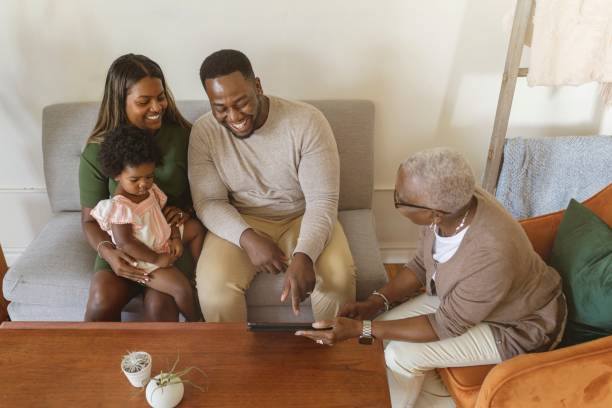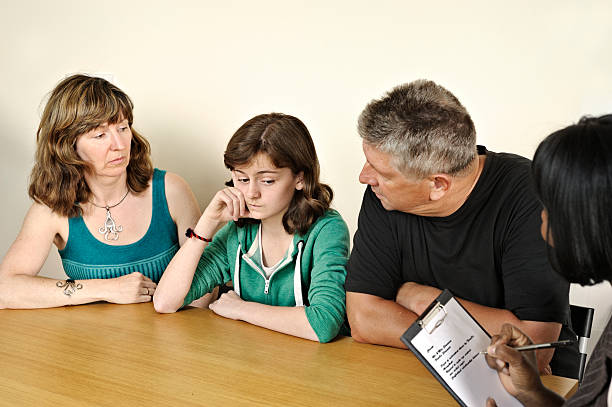An Independent Child Lawyer or Independent Children’s Lawyer (ICL) is the one responsible for representing the best interests of the child. In any family law matter, an independent child lawyer will ensure that the case proceeds in a way that is beneficial for the child.
In this article, we explore the meaning and roles of an independent child lawyer as outlined by the Family Law Act (1975). The relevant Sections fall under Division 10 of Part VII of the Act. Part VII deals with all matters in relation to children in family law.
Division 10, titled “independent representation of children’s interests” has three Sections. In this article we’ll be exploring these Sections to learn more about independent child lawyer within the context of the Family Law Act (1975).
Section 68L: Court Order for Independent Child Lawyer
As we know, the best interests of the child is the most important consideration in any family law matter. Therefore, Section 68L states that if the court thinks it is necessary that the child should have independent representation of his/her interests, it will appoint an independent child lawyer.
The family court can make necessary orders to secure that independent representation of the child’s best interests.
Moreover, the Section states that when dealing with proceedings in relation to international child adoption, the court may make an order for independent representation of the child’s interests in exceptional circumstances.
When can the Court make an order for appointing an independent child lawyer in the matter? The court can do so if:
- It thinks it’s reasonable to appoint one, or
- A child, an organisation concerned with the welfare of the child, or any other person makes an application for the same.
Additionally, Section 68L states that the family court can appoint an ICL to allow the lawyer to find out what the child’s views and opinions are about the case or matter in question. However, the child does not need to express their opinions if they don’t wish to do so. There is no compulsion that a person has to obtain the child’s opinion or views for any matter.
Moreover, the above-mentioned point about appointing an ICL to gauge the child’s opinion does not apply in cases where:
- It is not appropriate due to the child’s age or maturity level, or
- Due to some other special circumstance

Section 68LA: Role of an Independent Child Lawyer
As the title suggests, Section 68LA highlights the role of an ICL in any family law proceeding. Given below are general roles of the ICL:
- The independent child lawyer must form an independent view, based on the evidence available to the ICL of what is in the best interests of the child; and
- Act in relation to the proceedings in what the ICL believes to be the best interests of the child.
Moreover, they have the responsibility to let the court know of their opinion, if they believe that the adoption of a particular course will serve the child’s interests. It is necessary to note that the ICL is not the legal representative of the child. Additionally, the ICL does not necessarily need to act on the child’s instructions in case of any matter.
Specific Roles of the ICL
Given below are a list of specific roles of the ICL as stated in Section 68LA. It states that the ICL must:
- act impartially in dealings with the parties to the proceedings, and
- ensure that any views expressed by the child in relation to the matters to which the proceedings relate are fully put before the court.
Moreover, it is stated that in case any report or document related to the child needs to be used in the legal proceedings, the ICL has the responsibility to:
- analyse the report or other document to identify those matters in the report or other document that the ICL considers to be the most significant ones for determining what is in the best interests of the child,
- ensure that those matters are properly drawn to the court’s attention, and
- try their best to minimise the trauma to the child
- facilitate an agreed resolution of matters at issue in the proceedings for the sake of the child
In regard to disclosure of information, Section 68LA states that the ICL does not have to disclose any information that the child communicates to the court. Moreover, the court cannot make the ICL disclose such information either.
However, like in other matters, they can disclose the information if it will be beneficial for the child. This also applies if the the disclosure has been made against the child’s wishes.

Section 68M: Order That the Child Be Available For Examination
In the final Section under Division 10 of Part VII, Section 68M applies in cases where the court appoints an independent child lawyer for a family law matter.
The ICL can request the court to make an order, asking a person to make a child available for an examination. Through this examination, a person can write a report about the child. Furthermore, the independent child lawyer can use this report about the child during the proceedings.
According to this Section, the Court can order any one of the persons below, asking them to make the child available for such an examination. These persons include:
- parent of the child;
- person with whom the child is living under an exisiting parenting order;
- someone who has parental responsibility for the child;
- a person with whom the child spends time under a parenting order;
- someone the child is to regularly communicate with under a parenting order
Family Lawyer’s Legal Advice
In this article, we have discussed the roles of an independent children’s lawyer. As we have seen, the welfare and interests of the child in any family law matter are of utmost importance. Therefore, an ICL is an important personnel who can influence any legal proceeding.
While an ICL looks after the interests of the child, each party involved in the matter will also need representation from an experienced family lawyer. Our team at JB Solicitors are only one call away.
Contact us today if you have any enquiries and view our fixed fees here.
